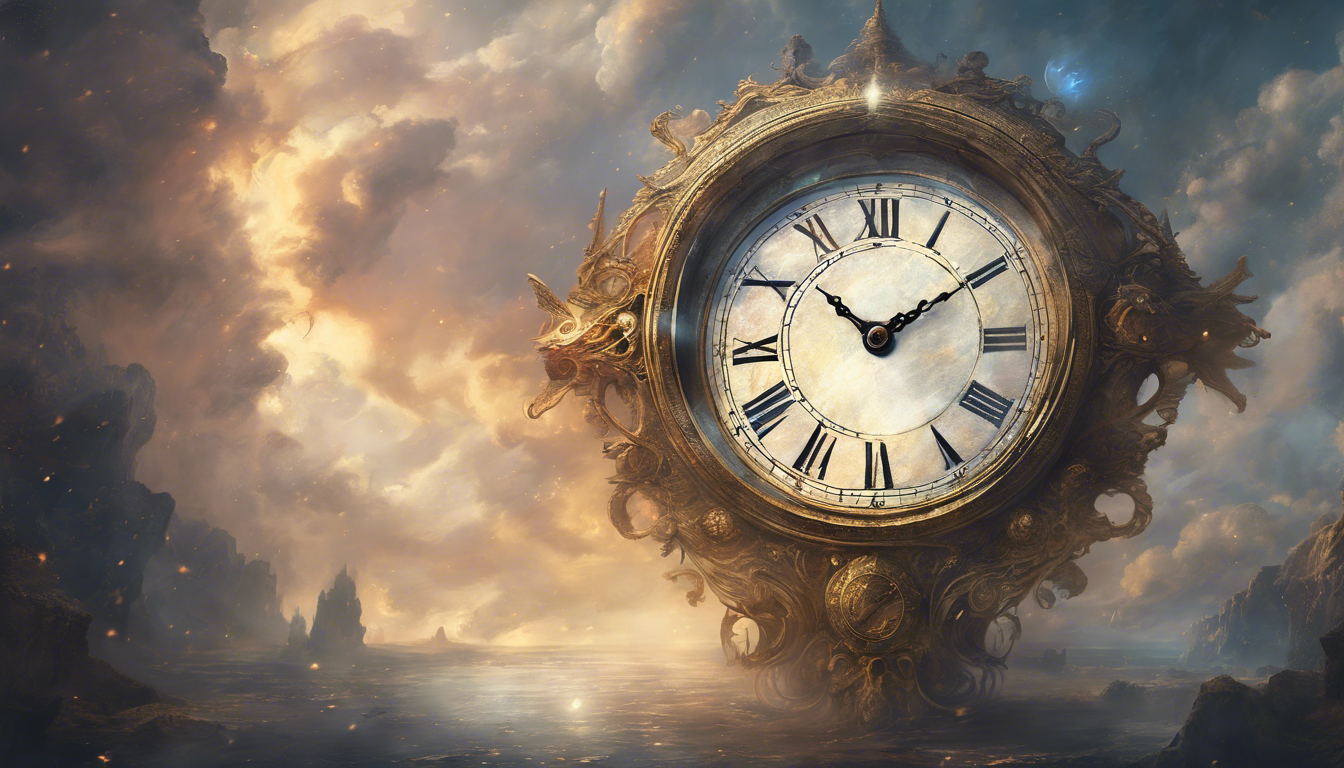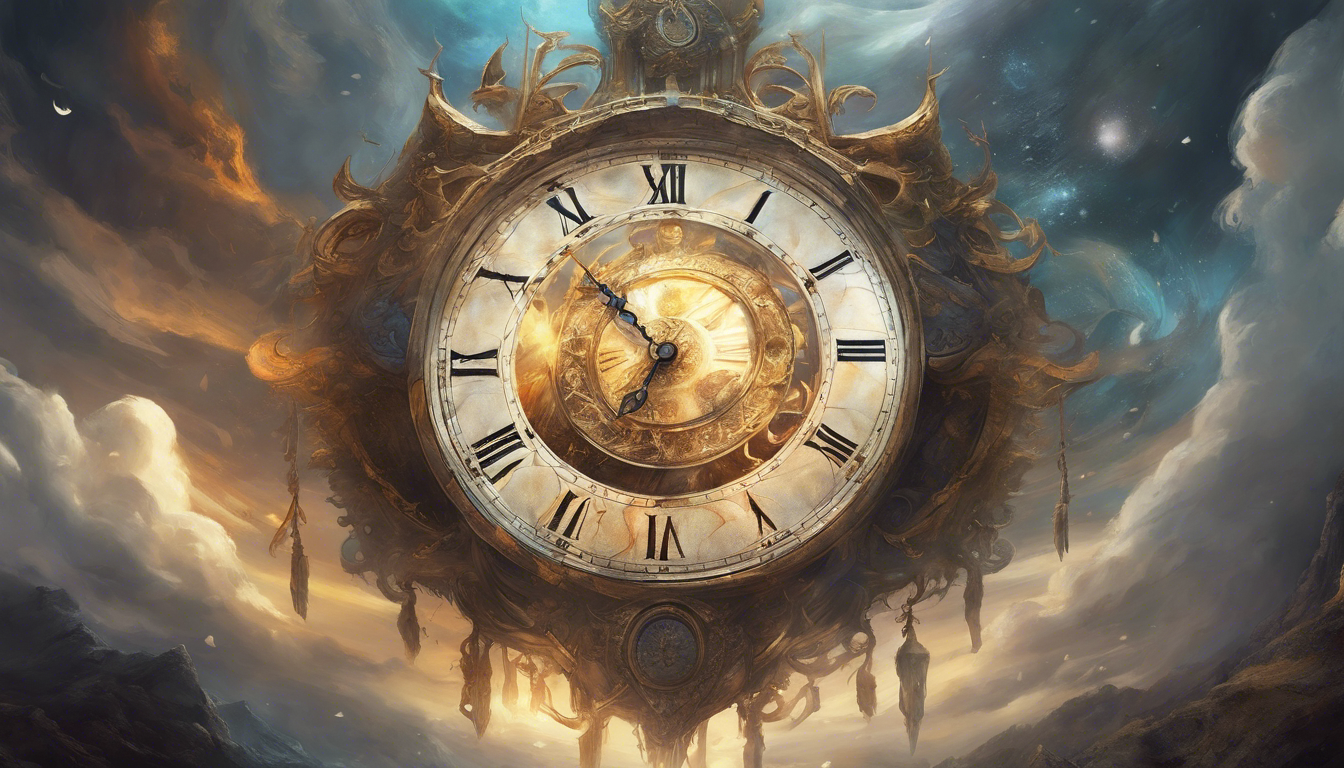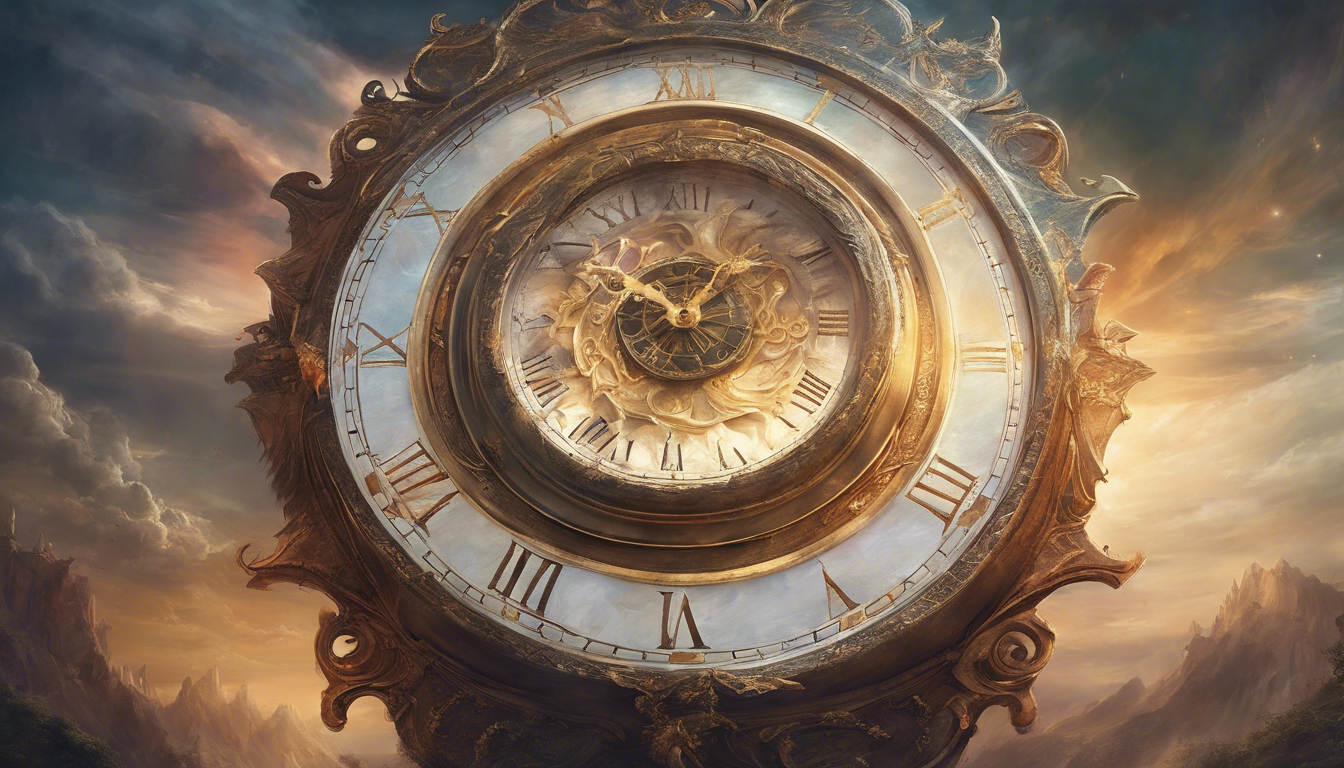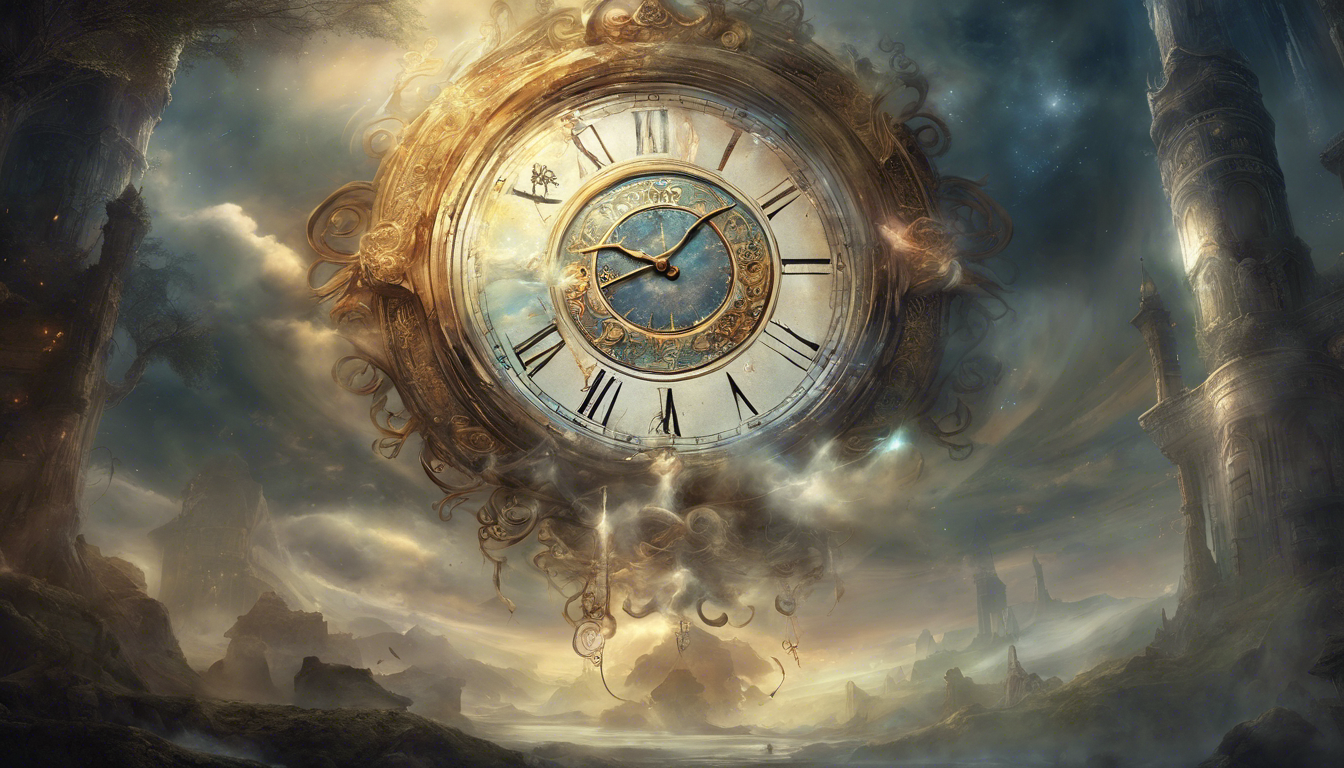The Concept of Time in Different Cultures
The concept of time is a fundamental aspect of human experience, influencing our perceptions, behaviors, and cultural values. Across different cultures, time is often imbued with rich symbolism that reflects deeper philosophical, religious, and socio-cultural beliefs. By exploring the diverse representations of time in various cultures, we can gain a deeper understanding of the complexities of human existence and the interconnectedness of global communities.
Symbols of Time in Different Cultures
In many cultures, time is symbolized by various elements such as the sun, moon, stars, and natural cycles. These symbols often represent different aspects of time, from the cyclical nature of seasons to the eternal passage of days and nights. For example, in ancient Egyptian culture, the sun god Ra symbolized the cycle of life, death, and rebirth, emphasizing the cyclical nature of time and existence.
In contrast, some cultures view time as a linear progression, moving towards a specific end or goal. This concept of linear time is reflected in religious traditions like Christianity, where time is divided into distinct periods such as creation, redemption, and apocalypse. The linear perspective of time underscores the idea of a predetermined destiny or ultimate purpose guiding human existence.
Interpreting Time Through Symbolism
The symbolic representation of time often influences cultural practices, rituals, and worldviews. For instance, the concept of “kairos” in ancient Greek philosophy distinguishes between chronological time (chronos) and the opportune moment for action (kairos). This distinction highlights the significance of seizing the right moment or divine timing in decision-making and life events.
Similarly, the concept of “yin and yang” in Chinese philosophy symbolizes the dualistic nature of time, with contrasting forces of light and darkness, activity and rest, constantly interacting and balancing each other. This symbol represents the cyclical flow of time and the interconnectedness of opposing forces in the natural world.
Implications of Time Symbolism on Cultural Identity
The symbolism of time plays a crucial role in shaping cultural identities and worldviews. By examining how different cultures interpret and symbolize time, we can uncover unique perspectives on life, nature, and the cosmos. Understanding these diverse representations of time fosters cross-cultural dialogue, mutual respect, and appreciation for the richness of human diversity.
In conclusion, the exploration of time symbolism across cultures reveals the profound impact of cultural beliefs and values on the perception of time. By delving into the symbolism of time, we unravel the intricate tapestry of human experiences, connecting past, present, and future in a timeless continuum of cultural heritage and collective wisdom.
Symbolism of Clocks in Various Traditions

The symbolism of clocks holds significant meaning in various cultural and spiritual traditions around the world. Across different societies, the concept of time and the representation of clocks encompass a plethora of symbolic interpretations.
Native American Traditions
In Native American traditions, the clock is often seen as a symbol of the cyclical nature of life and the interconnectedness of all things. The circular shape of a clock face mirrors the cycles of nature, representing the eternal flow of time and the continuous rhythm of existence. The hands of the clock moving in a circle signify the perpetual motion of life and the importance of living in harmony with the natural world.
Eastern Philosophies
In Eastern philosophies such as Taoism and Buddhism, clocks symbolize the impermanence of life and the transient nature of existence. The ticking of the clock reminds individuals of the fleeting moments of life and the necessity of mindfulness in every passing second. The hands of the clock pointing towards different hours serve as a reminder to live in the present moment and embrace the ever-changing nature of reality.
European Traditions
In European cultures, clocks are often associated with concepts of discipline, order, and productivity. The precision of clock mechanisms reflects the importance of structure and organization in daily life. Furthermore, the chimes of a clock mark the passage of time, reminding individuals of the inevitability of change and the need to make the most of each moment.
Symbolic Interpretations
Overall, the symbolism of clocks in various traditions highlights themes of continuity, impermanence, mindfulness, and productivity. Whether viewed through the lens of cultural beliefs or spiritual practices, clocks serve as powerful symbols that prompt individuals to reflect on the nature of time and their place within the cosmic order.
Historical Significance of Clocks Across Civilizations

Throughout history, clocks have held a significant symbolic importance across various civilizations. Let’s delve into the historical significance of clocks and their symbolism in different cultures.
Ancient Civilizations: Timekeeping and Divine Connection
In ancient civilizations such as the Egyptians, Greeks, and Romans, clocks were not just tools for timekeeping but also symbols of a deeper connection to the divine. The intricate designs of sundials and water clocks reflected the alignment of time with celestial bodies, emphasizing the interconnectedness of earthly life with the heavens.
Medieval Europe: Christian Symbolism and the Mechanical Clock
During the Middle Ages in Europe, clocks took on Christian symbolism, with clock towers adorning churches and monasteries. The mechanical clock, with its intricate gears and movements, symbolized the order and precision of God’s creation, highlighting the importance of time in fulfilling divine purposes.
Eastern Cultures: Harmonizing with Nature and Spiritual Balance
In Eastern cultures like China and Japan, clocks were seen as tools to harmonize with nature and achieve spiritual balance. The intricate designs of Chinese water clocks and the simplicity of Japanese sundials reflected a deep reverence for natural cycles and the connection between time and spiritual well-being.
Modern Era: Industrialization and Global Standardization
With the advent of the Industrial Revolution, clocks became symbols of efficiency, productivity, and global connectivity. The standardization of time zones and the widespread use of synchronized clocks emphasized the importance of time management in the modern world, shaping society‘s perception of time as a valuable and finite resource.
Conclusion: The Timeless Symbolism of Clocks
From ancient civilizations to the modern era, clocks have played a pivotal role as symbols of time, divine connection, and cultural values. The historical significance of clocks across civilizations showcases the universal importance of timekeeping and the enduring symbolism of clocks as reflections of human aspirations, spiritual beliefs, and societal progress.
Interpretations of Clocks in Religious Practices

Clocks play a crucial role in our daily lives, serving as a tool to measure time and keep track of our schedules. However, in the realm of religious practices, clocks hold a deeper symbolic significance that goes beyond mere timekeeping. Let us delve into the symbolism of clocks in various religious traditions and uncover the profound meanings behind their presence.
The Concept of Time in Religion
In many religions, time is not just a linear progression of moments, but a cyclical and symbolic dimension that connects the past, present, and future. The concept of time is often intertwined with spiritual beliefs and serves as a reminder of the transient nature of human existence.
The Symbolic Meanings of Clocks in Different Faiths
Christianity: In Christian symbolism, clocks are often associated with the idea of divine timing and the second coming of Jesus Christ. The hands of a clock moving in a circular motion symbolize the eternal nature of God and the continuous cycle of life and death.
Islam: Within Islamic tradition, clocks are seen as a reminder of the five daily prayers that must be performed at specific times. The precision of timekeeping in Islam reflects the discipline and commitment to worshipping Allah.
Buddhism: In Buddhism, clocks serve as a symbol of impermanence and the transient nature of existence. The ticking of a clock reminds practitioners of the ever-changing reality and encourages mindfulness in the present moment.
Utilizing Clocks in Spiritual Practices
Many spiritual practitioners incorporate clocks into their rituals as a way to deepen their connection with divine timing and align themselves with the cosmic rhythms of the universe. Whether through setting specific times for meditation or prayer, clocks can serve as powerful tools for enhancing spiritual awareness and fostering a sense of inner peace.
In conclusion, the symbolism of clocks in religious practices transcends their practical utility and offers deeper insights into the concept of time and spirituality. By understanding the symbolic meanings of clocks in various faith traditions, individuals can enrich their spiritual experiences and cultivate a deeper connection with the divine.


Article written by Dera
Greetings, I am Dera, a 35-year-old individual with a deep passion for spirituality. Through my website, I aim to share my insights and knowledge to help others on their spiritual journey. Join me on the path to inner peace and enlightenment.